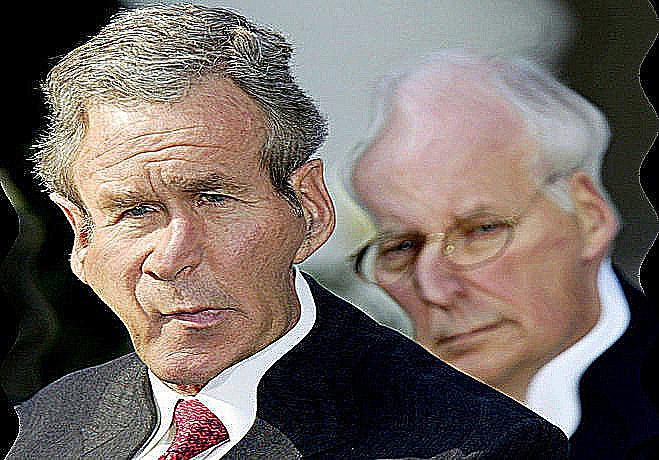How Bush-Cheneyism made Mideast in its Image: Wars, WOT, With us or Against Us
http://www.juancole.com/2016/03/how-bush-cheneyism-made-mideast-in-its-image-wars-wot-with-us-or-against-us.html

How Bush-Cheneyism made Mideast in its Image: Wars, WOT, With us or Against Us
By Juan Cole | Mar. 21, 2016
~snip~
For all their differences, Donald Trump and Ted Cruz are in large part campaigning on the full restoration of Bush-Cheneyism (and on moving to its right in many instances).
I warned at the time that quite aside from the disasters these policies brought upon the United States– the Iraq War, the 2008 financial collapse, the increase in US inequality, the illegal surveillance and targeting of regime critics– one central harm of Bush-Cheneyism is that it would inevitably legitimate these behaviors abroad. For better or worse, in the post-WW II era, the US has been an opinion leader and model for many other countries. For the US essentially to abrogate elements of the first, fourth and eighth amendments, when so many reforms and policies around the world have been modeled on our Bill of Rights, was extremely dangerous. Bush-Cheneyism also gave the US much less leverage abroad. Imagine having to go from the US embassy in Tashkent to meet with the Uzbekistan government in 2006 and complain about its use of torture. Wouldn’t that government just throw Guantanamo back in your face?
In today’s Middle East, Bush-Cheneyism has been embraced by the major countries of Saudi Arabia, Turkey and Egypt. (Though, to be fair, Egypt has so far avoided plank number 1, aggressive war beyond the country’s borders).
Turkish president Tayyip Erdogan lost the parliamentary elections last June, in part because of the rise of a leftist pro-Kurdish party, the HDP, which stole away votes from rural Kurds who had tended to favor Erdogan’s center-right, Islam-friendly Justice and Development Party (AKP). In response, Erdogan declined to let the AKP go into coalition and provoked new snap elections on November 1. But at the same time, from last summer, he annulled the peace process with the PKK terrorist organization consisting of a minority of separatist Kurds who had taken up arms. The PKK was guilty of provocations, but Erdogan’s response seems to have been calculated and vastly disproportionate. He cleverly finally acquiesced in US pressure to bomb Daesh (ISIS, ISIL) in al-Raqqa in Syria, which he had declined to get involved with earlier. But once the US gave him the identify friend or foe codes that would allow Turkish planes to fly over Syria and Iraq in US-controlled skies, he instead subjected the PKK to massive bombing runs, which largely ignoring Daesh.
